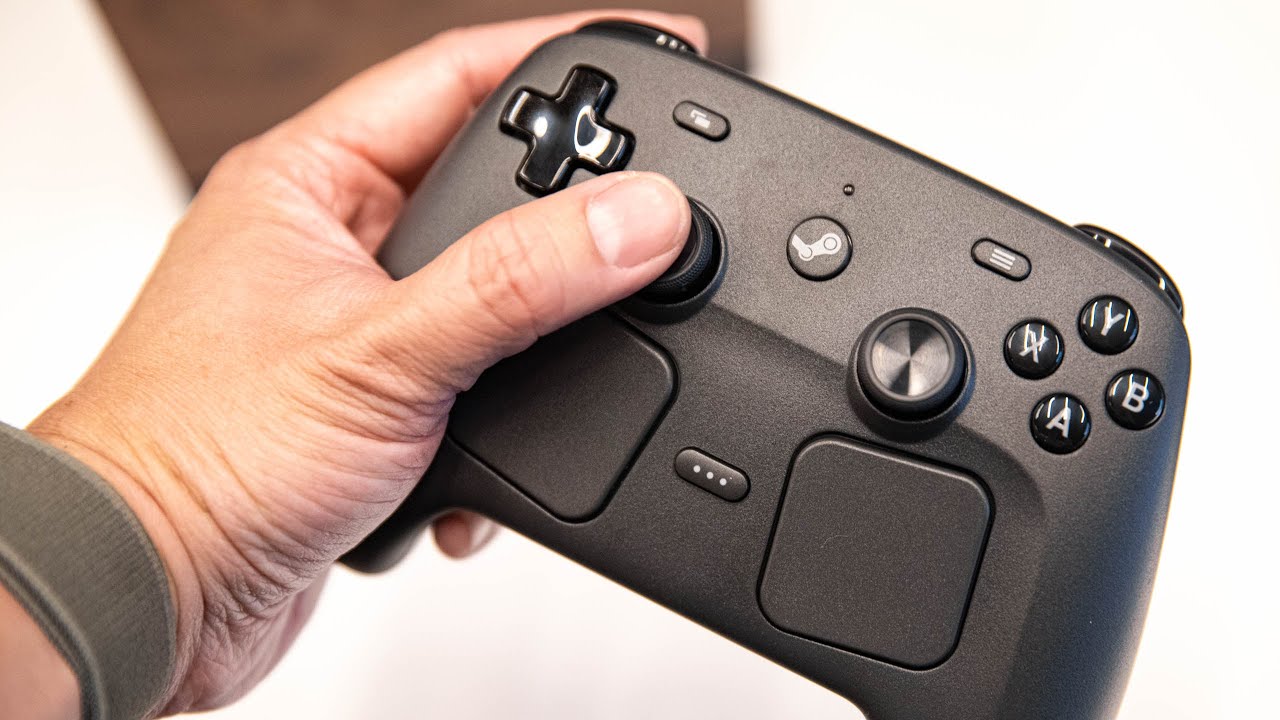- Valve says Steam Machine will be faster than 70% of PCs on Steam
- The company has its hardware survey to help judge where to present the specifications of the incoming mini PC.
- A Valve engineer shared this information and also stressed that it will be a basic device with an affordable price.
Valve assures PC gamers that the new Steam Machine won’t be underpowered as some fear, and that the cube will be faster than most gaming PCs.
Notebookcheck.net highlighted an interview on Adam Savage’s Tested YouTube channel (it’s embedded below), where Valve engineer Yazan Aldehayyat explains the philosophy behind the Steam Machine and how the specification was introduced.
As you can imagine, there are some moving parts, but Aldehayyat confirms an obvious point in terms of Valve’s thinking here.
That is to say, Valve has a key resource at its disposal: the Steam hardware survey, which is conducted every month with a portion of the gaming PCs that use the platform. It provides a useful overview of what’s on an average PC gamer’s platform, and that information can be, and has been, used to inform decision-making around Steam Machine specifications.
Aldehayyat tells us that the Steam Machine was specified to be equal to or better than 70% of gaming PCs running on Valve’s platform.
At the same time, the engineer acknowledges that the Steam Machine will be a basic device and that is because affordability is an important aspect. In fact, it’s clearly crucial if Valve wants this compact box to be widely adopted in living rooms around the world.

Look
Analysis: Do I dream of the steam engine?
As noted, there’s been quite a bit of heat directed at Valve over some of the spec choices with the Steam Machine, mainly because of the core CPU and GPU combo, and how it’s a bit of a weak sauce. Many of those criticisms boil down to Valve running an RDNA 3 GPU (the current generation is RDNA 4) and only plugging in 8GB of video RAM (which has become a notoriously unpopular burden these days, especially since Nvidia has stuck with it for more modest RTX 5000 GPUs).
However, much of the criticism comes from more enthusiastic players who are not the target audience. This is something I talked about yesterday in light of comments from a senior executive at Larian Studios (creator of Baldur’s Gate 3). Michael Douse noted that more casual gamers will look to purchase the Steam Machine, and more hardcore gamers will build their own PC in the living room or purchase a custom model. The latter will come from third-party manufacturers like Asus, who will make more powerful versions of the Steam Machine formula. After all, it’s just a mini PC running SteamOS in the background.
However, I think the Steam Machine will be more powerful than its specifications suggest. The Zen 4 CPU should be snappy enough, and as for all the GPU concern, we shouldn’t forget that it’s a semi-custom model, meaning it’s been tuned to work well with Valve’s software here; Don’t underestimate the big difference that could make. (Note that semi-custom refers to tuning only; it is not actually custom silicon, as Aldehayyat makes clear.)
Does that mean the Steam Machine will actually be able to game in 4K at 60 frames per second (fps) in the living room when using AMD Upscaling (FSR) technology? I’m not sure this kind of boast, which Valve has pushed as part of its initial marketing salvo, is smart, since clearly, this tiny cube won’t run every game at nearly that frame rate. But at the same time, this boast must be representative of something, and the overall goal of allowing casual gamers to play all of their Steam titles smoothly and in a relatively fluid manner. (Some of which will run at 60fps, upscaled to 4K.)
Also, don’t forget that most PC gamers have relatively underpowered computers and expectations are set much lower than that of a typical enthusiast. You only have to look at Steam’s survey to see that 8GB of RAM is still the most common video RAM load (and Valve did just that; in fact, only about 30% of Steam players have more than 8GB).
In any case, we can’t know the real truth about Steam Machine performance until we get full benchmarks. More importantly, we need the lens of the pricing valve pins on the Steam Machine to see how the whole package stands, and as Aldehayyat emphasizes again here, affordability is key.
Frankly, from the way the company and its staff talk, I don’t see Valve not making this work, as it has made Steam Deck stand out in the laptop field. My biggest concern remains not the Steam Machine specification, but rather the ongoing cost of SSD and memory inflation, which could complicate the pricing equations Valve is currently balancing behind closed doors. (Although it is also true that the prices of equivalent devices will be equally affected.)

The best PC drivers
Follow TechRadar on Google News and add us as a preferred source to receive news, reviews and opinions from our experts in your feeds. Be sure to click the Follow button!
And of course you can also follow TechRadar on TikTok for news, reviews, unboxings in video form and receive regular updates from us on WhatsApp also.



